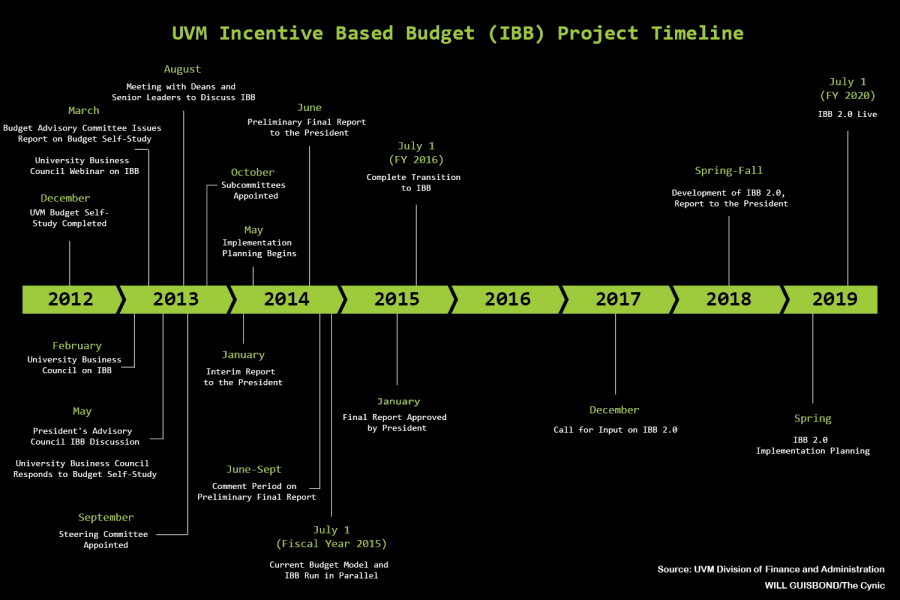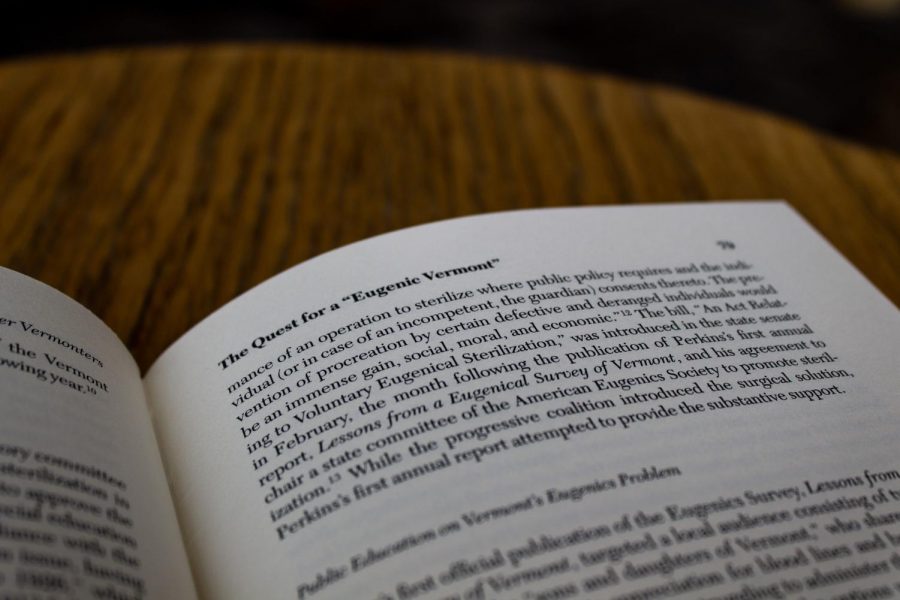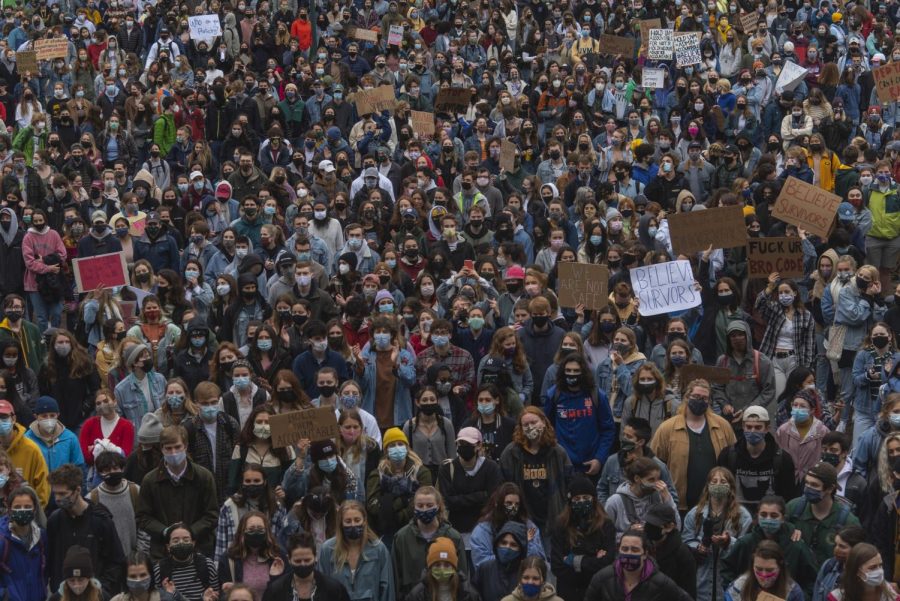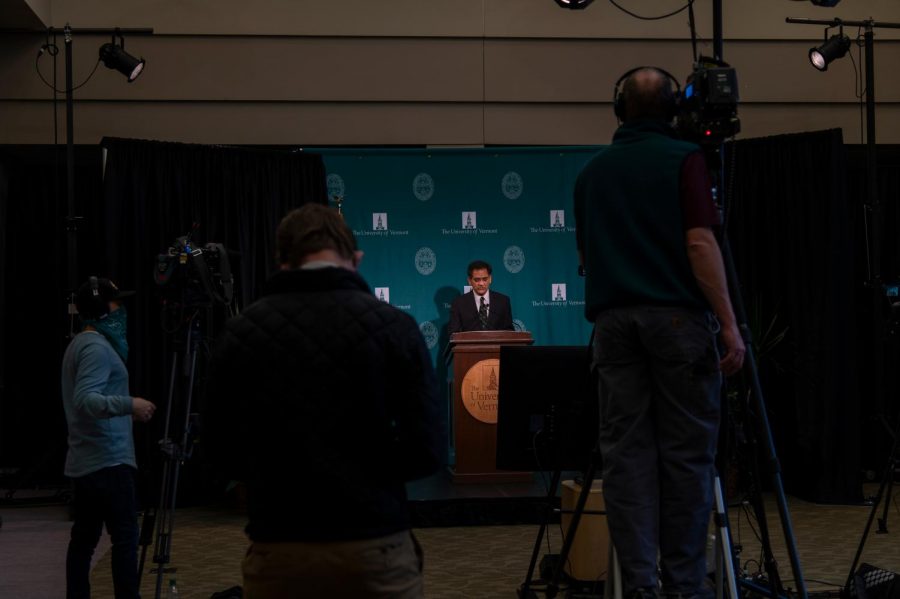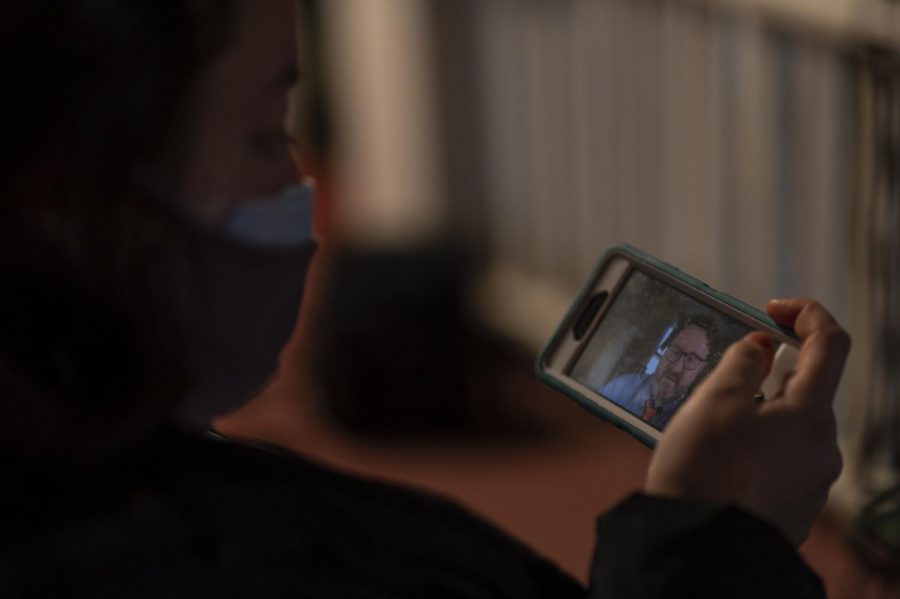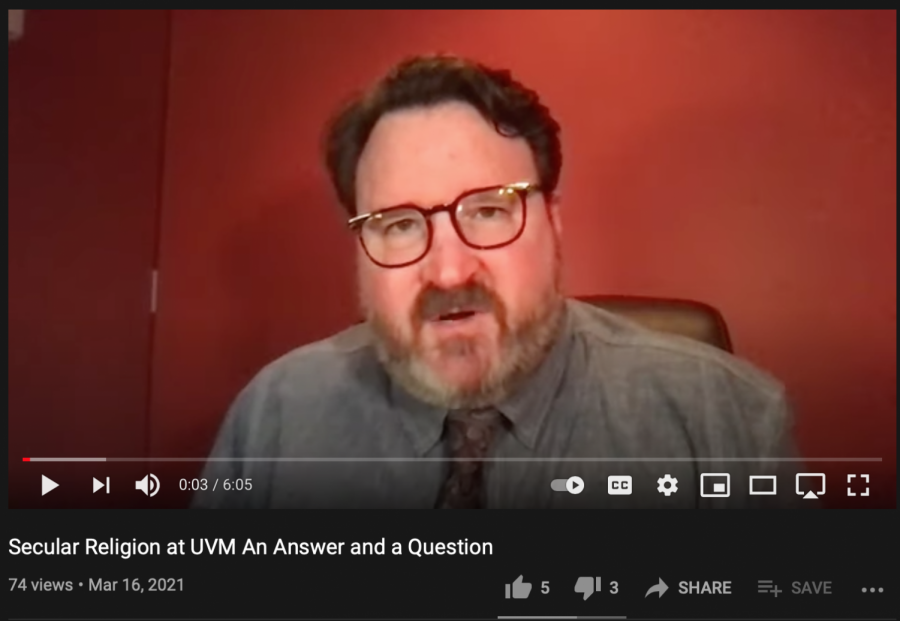World War III was the buzzword this summer. What a time to be alive; the threat of apocalypse itself being kicked around by CNN, Fox News and MSNBC like a hacky-sack. Stephen Colbert updated America nightly with his (admittedly hilarious) Road to Armageddon feature, and pundits promised the end was nigh.
Whether the 24/7 News prophets of doom were a cause for laughter or languish with you, their chatter was impossible to ignore – when Israel and Hezbollah butted heads this summer, O’Reilly and company were pumped to full blast.
Yet, while Americans basked in the warm, blue TV glow of their living rooms and watched a war unfold, two UVMers bore witness to the present and future of the Middle East crisis, beneath an angry Israeli moon.
Slowly the sun was setting but Gabe Reif and Garrett Naiman were just getting started. Outside their offices in University Heights, munching on brownies, Reif and Naiman (Student Leadership Coordinator for the Honors College and U-Heights North Assistant Residence Director, respectively) recalled what brought them to Israel in the first place.
Friends through masters classes in the Student Affairs Higher Education program at UVM, Garrett and Gabe (both Jewish) had been involved in an e-mail correspondence with a class discussing religious pluralism, Jewish heritage and its effects on spirituality. “In December, Garrett and I were talking and he said `what about going to Israel this summer?'” Gabe said. “I said you’re crazy but…why not?”
Throwing together a research mission about Israeli higher education, the two took off from Logan Airport on July fourth and, despite a holdup and reroute through Toronto, which cost them a day of their trip, they arrived whole and excited in Tel Aviv.
After five days at Tel Aviv University, studying the Israeli model of higher education, the two left for the University of Haifa. Laughing and finishing each others sentences like brothers, Gabe and Garrett, were more than happy to tell about their experiences in what was, at that point, a rather quiet coastal town.
“We got there and the big deal was that there were forest fires going on, people were evacuating the dorms and were really up in arms about that,” Gabe remembered. Between that and the World Cup, the trip began as purely cultural and academic, though not without initial tension.
“When you walk into a mall, a restaurant, anywhere, your bag is being checked, there is a metal detector on you.
You know you’re in Israel,” Garrett said. Leaving an extra tip for the security at the door was another shock for the first time visitor and was a sure sign that he was not in Vermont any longer.
As the forest fires raged not 30 miles away from where Reif and Naiman were studying, another spark was struck ablaze when, on July 12, Hezbollah operatives crossed the border into Israel and seized two IDF (Israeli Defense Force) soldiers.
“There was a very distinct moment when the trip changed.” Garrett explained after giving background into the trip.
During a conversation with an Israeliequivalent to an RD, the phone rang. “She turns to us and says, `I’m not panicking,’ though she was,” Garrett said. “‘But two soldiers just got kidnapped and eight more were killed on the blue line,’ which is the border with Lebanon.
She made sure her brother was OK, took a deep breath and resumed her conversation with us. We talked basketball for a while!”
He said fondly. “Which I thought was very Israeli – dealing with crisis, but still in the moment of regular life.”
Done with Haifa, on a whim the duo decided to leave for Jerusalem a day early – arriving three hours before rockets began pouring down upon the city they had just departed from; on streets they had walked down that morning.
“Suddenly the forest fire, no one gives a rat’s ass about that. People are in bomb shelters!” Gabe said. “And on the news, we could see streets we were on earlier that day.” Garrett said, finishing for him.
Thrown into a war zone, the mood of the trip shifted – fear slunk into the forefront of their minds, though not enough to usurp their trip. They were both adamant in assuring that the very thought of regret was foolish – they wouldn’t have changed a moment, despite the tension.
Moving onto Jerusalem in such an altered Israel – a nation now actively at war – made the events that followed all the more poignant.
“This was our third night in Jerusalem, hanging out, people watching in Zion Square, when a contingency of about a hundred youth – probably around high school age, all clearly Jewish based on garb – came in with this amazing energy.
“They were singing and dancing, all these boys and girls and, to me, it was like everything that was good and pure and celebratory and fun and beautiful about my Jewish culture and the Jewish people and Jewish youth was there.” Garrett said, with his eyes on the wall, far away and glowing.
Out of nowhere a group of around 70 teenagers stormed into the square, racing up towards the opposite end, bringing with them a sea change in the crowd’s attitude. “It was like there was a celebrity up at the top of the street; a very urgent and aggressive energy.” Garrett went on, “We follow them cautiously behind when the next thing we know a lot of those same youths come running back down the street and, on the left, a police car is driving up.
I turn to this fifteen-year-old young man and ask him what’s going on and he says, `They just beat up an Arab.’ He looked at us and our shock and said, pretty disdainful, `You’re an American, you don’t understand, it’s just an Arab. No one cares.'” This story is representative of the attitudes held by both sides of the conflict.
Neither Israel nor the rest of the Arab world views the life of the other as holding any value. In Garrett’s words, “The kid’s friends start walking up asking, `What’s up? What’s going on? Oh, it’s just an Arab?- what are you doing tonight?'”
This is the attitude the youth have; instilled within them from birth, perpetuated by their parents and the culture they live in, they grow up hating. They join the military (a mandatory three years for Israeli males), go to war against the people they are trained to hate and have children who are then socialized in the same way.
It is a bloody circle, unending and slowly, painfully collapsing in on itself – taking the entire region with it. The idea of children, and their role in the future, was a recurring thought for Reif and Naiman. Garrett talked about standing in a falafel shop with a Muslim woman and her daughter.
“She had the biggest, brown two year- old eyes and she’s smiling at me and I’m smiling back. Later, I’m thinking that it won’t be long until that little girl isn’t going to be smiling at me anymore, she’s going to learn to fear or hate or all of the above.”
Fear is a major problem, on both sides. Speaking at a recent meeting at UVM on environmental issues facing UVM, a Jordanian student named Oapr called it, “The story of fear. “Fear for both sides – there is no real dialogue or trying to understand each other. This fear leads them to act violently and believe the other side is hostile.
This is the root of this violence in the area.” Gabe experienced thissort of narrow understanding during the trip, at an Israeli family’s house for dinner. “I had dinner with this family…grandparents who were about 60, parents about 30, and a baby. They were great, but they were talking about ‘the dirty trades that all people in Lebanon practice,’ the `dirty oil business,’ the ‘dirty drug business.’ There is very little cross cultural respect. I wouldn’t even dare to ask ‘Well, have you ever thought about it THIS way?’ People were angry, people only saw one side of things.”
He and Garrett were quick to add that this was merely the impression they received from those they talked to – obviously not the ideals held by all Jewish people everywhere or even in Israel.
“It all goes both ways…hate and hate and hate and hate.” Gabe lamented. Later in the trip, the pair witnessed a halted suicide bombing on a busy Jerusalem street, sending shockwaves through both of them.
“Here’s this guy,” Garrett said, “and sure it’s natural for me to be scared, it’s natural for me to be angry at him, and then, I also felt sad. This is the way that this guy thinks he can be most effective doing social justice for his people. That makes me sad that he feels such a need to make life ‘better’ for his people. Lots of people think ‘Oh, he must just hate Jews’ but I don’t view it that simply.”
There is nothing simple about the war torn region. Fueled on religion and millennia-old strife, it’s an area already aflame; militants and civilians are pouring kerosene all over it. Until someone grabs a hose, the cycle will not break and the fire will smolder on.











